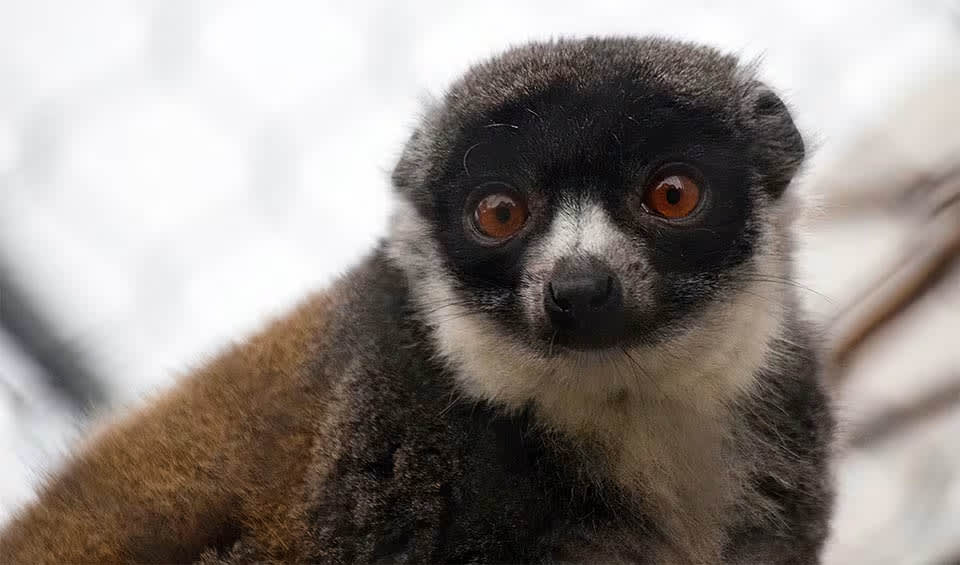A fascinating primate species native to the dry deciduous forests and scrublands of Madagascar and the Comoros Islands. This small, agile lemur is named for its mongoose-like appearance, with a slender body, pointed snout, and keen, inquisitive eyes. Mongoose lemurs are known for their striking coloration, which varies between males and females, a phenomenon known as sexual dichromatism. Males generally have gray or brown fur with a reddish-brown face and forehead, while females are usually gray with a lighter, more muted face. This distinctive appearance helps them blend into their natural surroundings, providing camouflage from predators.
One of the most interesting aspects of mongoose lemurs is their adaptability and dietary habits. They are primarily frugivorous, feeding on a variety of fruits, but their diet can also include flowers, nectar, leaves, and occasionally insects. Their feeding habits vary with the seasons and availability of food sources. During the dry season, when fruits are less abundant, they rely more on nectar and leaves. This dietary flexibility helps them survive in the fluctuating environments of their habitats.
Mongoose lemurs are diurnal, meaning they are active during the day, but they also exhibit some nocturnal activity, especially during the dry season. They are arboreal, spending most of their time in trees, where they move with agility and grace. Their strong, grasping hands and feet are well-adapted for climbing and navigating the forest canopy.
Distribution
 Comoros
Comoros Madagascar
MadagascarAnything we've missed?
Help us improve this page by suggesting edits. Glory never dies!
Suggest an editGet to know me
Terrestrial / Aquatic
Altricial / Precocial
Polygamous / Monogamous
Dimorphic (size) / Monomorphic
Active: Diurnal / Nocturnal
Social behavior: Solitary / Pack / Herd
Diet: Carnivore / Herbivore / Omnivore / Piscivorous / Insectivore
Migratory: Yes / No
Domesticated: Yes / No
Dangerous: Yes / No




